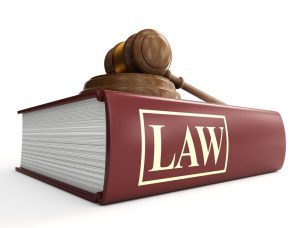We know that getting a job can be a nightmare. Applicants have to jump through so many hoops to keep employers happy and it’s often easier just to agree to whatever they ask. That’s fine when they’re asking for three copies of your passport or your GCSE certificates. However, there’s a growing trend of employers asking for DBS checks on people illegally. There’s lots of confusion around the whole system, so here’s what you need to know.
How can DBS checks be illegal?
 The law is very clear when it comes to disclosure checking. Employers can only ask for checks through the Disclosure and Barring Service when the role requires it. Employers are not free to pick and choose who they want to check. The list of occupations which need a disclosure check is drawn up by the government. The list is long, but can be split into two main groups. Most people who need to go through the checks are either working with vulnerable people, or in positions of responsibility in the legal profession or finance. A manager in an office might have responsibilities, but usually won’t need a DBS check. A bank manager or traffic warden would. Check online to see if your sort of work needs disclosure checking or not.
The law is very clear when it comes to disclosure checking. Employers can only ask for checks through the Disclosure and Barring Service when the role requires it. Employers are not free to pick and choose who they want to check. The list of occupations which need a disclosure check is drawn up by the government. The list is long, but can be split into two main groups. Most people who need to go through the checks are either working with vulnerable people, or in positions of responsibility in the legal profession or finance. A manager in an office might have responsibilities, but usually won’t need a DBS check. A bank manager or traffic warden would. Check online to see if your sort of work needs disclosure checking or not.
Are Employers Just Confused?
In a lot of cases, yes. Employers are just people like you and me. Over the years the rules about who needs checks have changed several times. The CRB changed its name to the DBS. There are separate bodies in Scotland and Northern Ireland. Every time there’s a high profile crime, the issue of whether checks were done is discussed at length. It’s therefore no surprise that many employers think they’re erring on the side of caution by just checking everyone. In most cases, they’re not trying to break the law. They’re just doing what they think is best, and safest. Most don’t know that asking for disclosure checking in roles which don’t require checks is a criminal offence. Under the Police Act of 1997, the maximum sentence is £5000 fine, or up to six months in prison.
Rehabilitation of Offenders
Part of the reason why it’s illegal to run DBS checks on everyone is to keep on the right side of the Rehabilitation of Offenders Act. Around a third of UK adults have had some sort of brush with the law in the past, and in the UK the law allows us to turn over a new leaf. In most cases, you wouldn’t be expected to declare minor convictions from 30 years ago each time you apply for a job. If you’re applying for an office or retail job, employers are only allowed to ask about offences which are not considered “spent”. These are recent offences, or serious offences. Some levels of DBS checking will show a higher level of detail, with older convictions. As employers don’t have the right to delve so deep, they are breaking the law by asking for disclosure checks. If you think your employer is asking for an illegal check, don’t be afraid to challenge it.